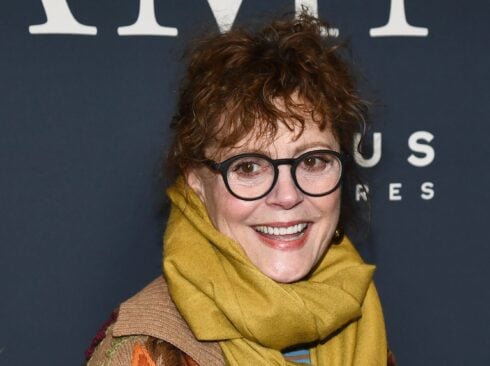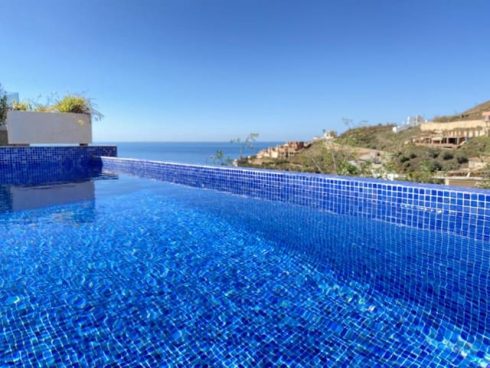IT was on a long drive back from Portugal to Denia to catch the ferry to Ibiza that Paul Richardson stumbled across the little known region that would eventually become his home.
He was to turn his back on fast-paced modern life for a rural idyll – for the second time.
A decade earlier, he had landed in Ibiza to escape a hectic life back in London, arriving on the White Isle in his ‘little brown mini’.
Apart from a suitcase full of New Romantic-style clothes he, crucially, had a deal to write his first book.
So eschewing the party hotspots – the clubbing scene in Ibiza was exploding in 1989 – he found a typical white-washed cottage and settled into a self-sufficient lifestyle growing vegetables and keeping chickens.

“I didn’t know how long I’d be in Ibiza, but I knew it’d be at least a year to write the book,” Paul told the Olive Press, this week. “In the end I was there for 10 years.”
While he still loves the island, he slowly watched the rural lifestyle disappear, as it became the St.Tropez of Spain.
“Affordable rural living was not really an option any more,” he explained, adding he had been harking for the old lifestyle back – and that was when he came across the perfect spot by accident.
He had been to Portugal to interview classical pianist Maria João Pires, ‘she is quite brilliant’ says Paul, and on the way back he crossed into Caceres province.

Here he was to find what he had lost. He fell in love with the wide-open landscape, traffic-free roads and lack of ugly modern buildings and was to return to explore alongside his partner, Nacho Trives, several times.
On one of those occasions they came across a finca for sale outside the village of Hoyos and made the decision to stay.
Now 23 years on he and Nacho – who married in 2010 – are still there. It is this period in his life that is the subject of his latest book Hidden Valley, which came out this summer.
“Everyone thought we were mad to leap off a cliff moving to such a remote place, especially as a gay couple,” said Paul.
In fact this is part of what the 59-year-old former Chichester Cathedral choirboy, Old Etonian and Cambridge University alumni (he left with a First in English) finds fascinating.
The journalist (he works for the Financial Times, Guardian and Conde Nast Traveller, among others) explained: “It was an interesting transition for someone with my educational background. I knew a lot of things but I had so much to learn”.
Hidden Valley essentially reads like a love story – a love of the land and the people he got to know on his journey through the coming decades – but it was definitely not all a bed of roses.

Paul added: “It was like the wild west. People lived full on, with bar fights and all. It was a hard environment and you had to be tough enough to stand up for yourself.
“To be honest I was petrified and stayed at home a lot. It was quite a while until l earned their respect.”
But earn their respect he finally did and the help and advice he got from the villagers were crucial to the couple creating a new life together.
“It was a very steep learning curve. But I think it is important to realise that it was an environment where it wasn’t just about what we learned from them, but also about what we could give to them. I think that is very satisfying – it is a two-way process,” says Paul.
But all things change even in Extremadura.
Paul explained: “Up until five to 10 years ago the matanza (pig slaughter) was a big thing. Everyone had a pig and came together for the slaughter. It was a cultural experience, something that had been done for hundreds of years. This is just one example of what is being lost.

“When I moved here it was remote, now communications are vastly improved.
“Madrid is just three-and-a half hours away. It is not just a transport thing. It is communication. Back when I moved here there was no internet, no mobile phone coverage. Now everyone is connected.
“Youngsters don’t want to stay, so farms and land are abandoned, which leads to fires.
“Old ways of doing things – collective knowledge – are forgotten. Even the weather has changed.”
He concluded: “It is a real shame that this cultural richness is being lost.”
Will he move on again? Are there any more, hidden rural idylls out there for Paul to discover? We’ll find out in his next book, perhaps.
Read part one of our exclusive serialisation here: Hidden Valley: Batten down the hatches
Hidden Valley: Finding freedom in Spain’s deep country is published by Abacus Books.
He has written half a dozen travel books, his first being; Not Part of the Package: A Year in Ibiza
Click here to read more La Cultura News from The Olive Press.








